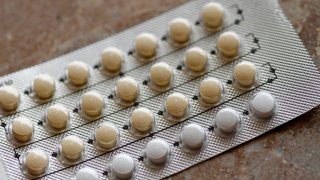
In a bid to expand reproductive health care access, Massachusetts public health officials have agreed to allow pharmacists to dispense hormonal contraceptives directly to patients.
The state Public Health Council on Wednesday approved on an emergency basis updated regulations that authorize pharmacists to prescribe and provide hormonal contraceptive patches and self-administered oral hormonal contraceptives to individuals, regardless of whether their primary or reproductive care providers have previously prescribed the medication.
"These are timely as we both address shifting policy and reproductive health in states across the country, and as we welcome more individuals into our emergency assistance programs, many of whom will be able to benefit from the access to timely and necessary reproductive health care that these amendments provide," state Public Health Commissioner Dr. Robbie Goldstein said at the meeting.
The council vote allows the regulations to take effect on an emergency basis for three months, a Department of Public Health spokesperson told the News Service. Next steps include a public hearing on Nov. 6, which will help officials gauge whether any other regulatory changes are needed, the spokesperson said.
Get Boston local news, weather forecasts, lifestyle and entertainment stories to your inbox. Sign up for NBC Boston’s newsletters.
The Public Health Council plans to take a final vote on the updated regulations during a December or January meeting, according to the spokesperson.
The regulations are needed to implement existing state law, said Dr. David Johnson, director of DPH's Drug Control Program.
The regulatory changes create an exemption for pharmacists to administer the hormonal contraceptives without obtaining a controlled substance registration from the state, building on to the exemptions in place for registered pharmacists to dispense flu shots, COVID-19 vaccines, and certain drugs to treat mental health or substance use disorders, Johnson said.
Local
In-depth news coverage of the Greater Boston Area.
"It authorizes but does not mandate a pharmacist to engage in this prescriptive practice," Johnson said at the meeting.
The revised regulations, which drew praise from several Public Health Council members, also prompted some to raise concerns over whether all Bay Staters would see expanded access to contraceptives or if there may be some underserved geographic areas. The state's ability to track qualified pharmacists is unclear, a DPH official signaled at the meeting.
Participating pharmacists must complete a training program, give patients a self-screening risk assessment tool before they get the prescription, encourage the patient to consult with a primary or reproductive care provider, give the patient a written record of the medication that's been prescribed, and dispense the medication "as soon as practicable after the prescription is issued," Johnson said.
Goldstein said DPH has a goal of boosting access to hormonal contraception.
"These efforts to expand where people can access oral contraceptives are part of a coordinated approach that the department is trying to take to make sure that everyone in the commonwealth has access to appropriate reproductive health care, comprehensive reproductive health care, reproductive health care in the absence of deceitful practices, deceptive practices, inaccurate or not factual information, and to make sure that people can take care of themselves in the way that they need to," Goldstein said.



